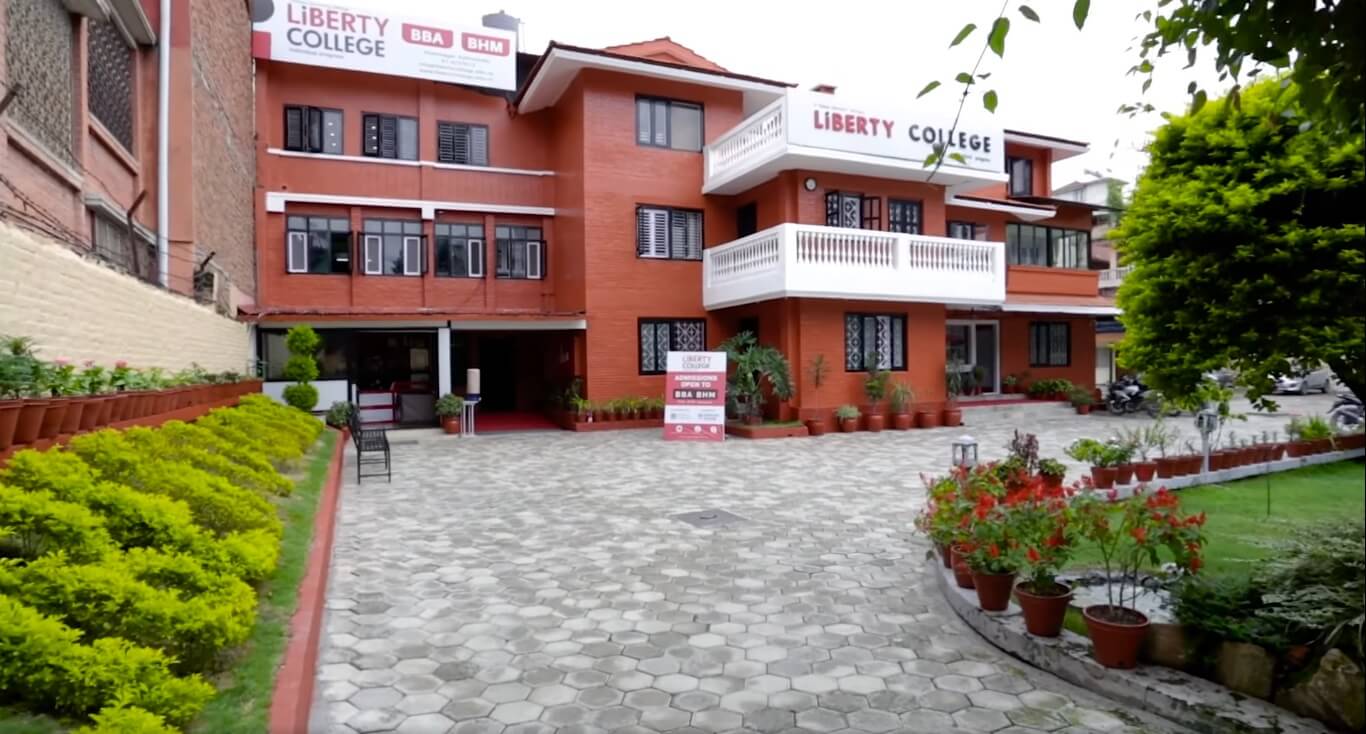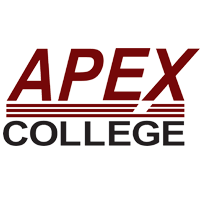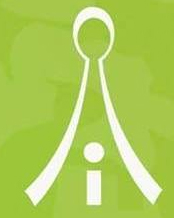Overview
Bachelor of Business Administration in Finance (BBA Finance) at Liberty College, Anamnagar, Kathmandu, Nepal (affiliated with Pokhara University)
The Bachelor of Business Administration in Finance (BBA Finance) program at Liberty College, located in Anamnagar, Kathmandu, and affiliated with Pokhara University, is a four-year undergraduate course designed to cultivate expertise in finance. This finance degree is structured to equip students with essential knowledge and abilities for navigating the complexities of financial markets and corporate financial management in Nepal and globally.
The BBA Finance program combines theoretical foundations with practical applications, enabling graduates to take on diverse roles in the financial sector. This specialized finance program is ideal for individuals seeking a focused education in financial principles and practices within a business context.

Curriculum Details
The BBA Finance curriculum is structured over eight semesters and incorporates a progressive learning approach. It includes a mix of core business courses, specialized finance subjects, and elective options to allow for tailored learning.
Core Courses:
The foundational semesters cover essential business disciplines such as:
Principles of Management
-
Economics (Micro and Macro)
-
Accounting (Financial and Managerial)
-
Marketing Fundamentals
-
Business Law
-
Organizational Behavior
-
Business Statistics
-
Business Communication
These courses provide a broad understanding of the business environment within which financial decisions are made.
Specialized Finance Courses:
As students progress, the curriculum delves into specialized finance areas, including:
Financial Markets and Institutions
-
Investment Management
-
Corporate Finance
-
Financial Statement Analysis
-
Risk Management
-
Portfolio Management
-
International Finance
-
Derivatives and Risk Hedging
-
Financial Modeling
These BBA-F are intended to provide in-depth knowledge of financial theories, tools, and techniques applicable to real-world scenarios.
Electives:
Students can select from various electives in the later semesters to allow for some customization. These may include topics such as:
-
Behavioral Finance
-
Financial Technology (FinTech)
-
Islamic Banking and Finance
-
Entrepreneurial Finance
-
Advanced Corporate Finance
-
Electives enable students to explore niche areas within finance or related fields, aligning with their career interests.
Objectives
The primary objectives of the BBA Finance program are to:
-
Provide a strong base in core business management principles.
-
Develop specialized knowledge and skills in finance theory and practice.
-
Cultivate analytical and problem-solving abilities relevant to financial decision-making.
-
Prepare students for careers in various financial sectors, including banking, investment management, and corporate finance.
-
Encourage ethical and responsible financial practices.
-
Encourages lifelong learning and professional development in the finance field.
Scope
The scope of the BBA Finance program is broad, encompassing various facets of the financial world. It covers both theoretical frameworks and practical applications, ensuring graduates are well-versed in current financial practices and industry standards. The program delves into domestic and international financial systems, preparing students for roles in a globalized economy.
Learning Outcomes
Upon completion of the BBA Finance program, graduates will be able to:
-
Apply core business management principles to financial contexts.
-
Demonstrate a solid understanding of financial markets, institutions, and instruments.
-
Analyze financial statements and assessment of the financial health of organizations.
-
Construct and manage investment portfolios.
-
Evaluate and manage financial risks.
-
Apply financial models and techniques for decision-making.
-
Understand and navigate ethical considerations in finance.
-
Communicate financial information effectively to diverse audiences.
Skill Development Modules
The program incorporates specific modules and pedagogical approaches to enhance crucial skills:
-
Analytical Skills: Case studies, financial modeling exercises, and data analysis projects are used to sharpen analytical abilities.
-
Problem-Solving Skills: Students develop practical solutions by tackling real-world financial problems through simulations and project work.
-
Communication Skills: Presentations, report writing, and group discussions improve written and verbal communication capabilities.
-
Technological Skills: Training in financial software and analytical tools prepares students for technology-driven financial roles.
-
Ethical Reasoning: Coursework and discussions emphasize ethical dilemmas in finance, promoting responsible decision-making.
Teaching Methodology
The teaching methods employed in the BBA Finance program are interactive and student-centered:
-
Lectures: Providing theoretical foundations and core concepts.
-
Case Studies: Analyzing real-world financial situations to apply learned theories.
-
Group Discussions: Fostering collaborative learning and diverse perspectives.
-
Presentations: Developing communication skills and confidence in presenting financial information.
-
Simulations: Using financial market simulations to provide hands-on experience in trading and investment.
-
Guest Lectures: Industry professionals are invited to share insights and current industry practices.
-
Project Work: Individual and group projects allow in-depth exploration of specific finance topics.
Faculty Expertise
The faculty teaching in the BBA Finance program consists of experienced academics and industry professionals. They possess advanced degrees in finance, economics, and related fields, bringing academic rigor and practical industry insights to the classroom. Faculty members are committed to research and stay updated with current trends in the finance sector, ensuring the curriculum remains relevant and cutting-edge.
Admission Requirements
To be eligible for the BBA Finance program, candidates must have completed Class 12 (Ten Plus Two) or equivalent education from a recognized board with a minimum specified grade. The admission process typically includes:
-
Submission of a completed application form.
-
Academic transcripts and certificates.
-
Performance in the Liberty College Admission Test (LCAT).
-
Personal Interview.
The college announces specific grade requirements and admission deadlines for each academic year.
Career Opportunities
Graduates of the BBA Finance program have access to various career paths within the financial sector, including:
-
Financial Analyst
-
Investment Banker
-
Portfolio Manager
-
Credit Analyst
-
Financial Planner
-
Risk Manager
-
Corporate Finance Manager
-
Banking Officer
-
Stockbroker
The strong financial foundation and practical skills gained from the program prepare graduates for entry-level positions and provide a solid base for career progression in finance.
Student Life and Extracurricular Activities
Liberty College provides a supportive student life environment. Students are motivated to participate in extracurricular activities (ECA), including finance-related clubs, seminars, and workshops. These activities enhance learning, provide networking opportunities, and contribute to overall personal and professional development.
Scholarships and Financial Aid
Liberty College offers various scholarships and financial aid options to support deserving students. These include merit-based scholarships, need-based aid, and specific category scholarships. The college's office of financial assistance provides details on eligibility criteria and application processes.
Why Choose This Course?
Choosing the BBA Finance program at Liberty College offers several advantages:
-
Specialized Finance Focus: The program provides in-depth knowledge in finance, setting graduates apart in the job market.
-
Practical Skill Development: Emphasis on case studies, simulations, and projects ensures practical skill acquisition.
-
Experienced Faculty: Learn from experienced academics and industry professionals.
-
Industry Relevant Curriculum: The curriculum is updated to reflect current trends and industry needs.
-
Career Opportunities: Graduates are well-prepared for diverse and rewarding careers in the financial sector.
Why Choose This College?
Liberty College provides a conducive learning environment with:
-
Reputable Affiliation: Affiliation with Pokhara University ensures academic standards and recognition.
-
Modern Facilities: Well-equipped computer labs, libraries, and classrooms enhance the learning experience.
-
Supportive Environment: A student-focused approach with support for academic and extracurricular growth.
-
Location in Kathmandu: Access to opportunities and networks in Nepal's capital city.
Conclusion
The BBA Finance program at Liberty College is a robust and focused undergraduate course designed to develop competent and ethical financial professionals. With its comprehensive curriculum, experienced faculty, and emphasis on practical skills, the program provides a strong platform for graduates to succeed in the dynamic world of finance.
Contact Liberty College's administrative office for detailed information on the BBA Finance course, including fees, scholarships, facilities, counseling, eligibility criteria, etc.


















